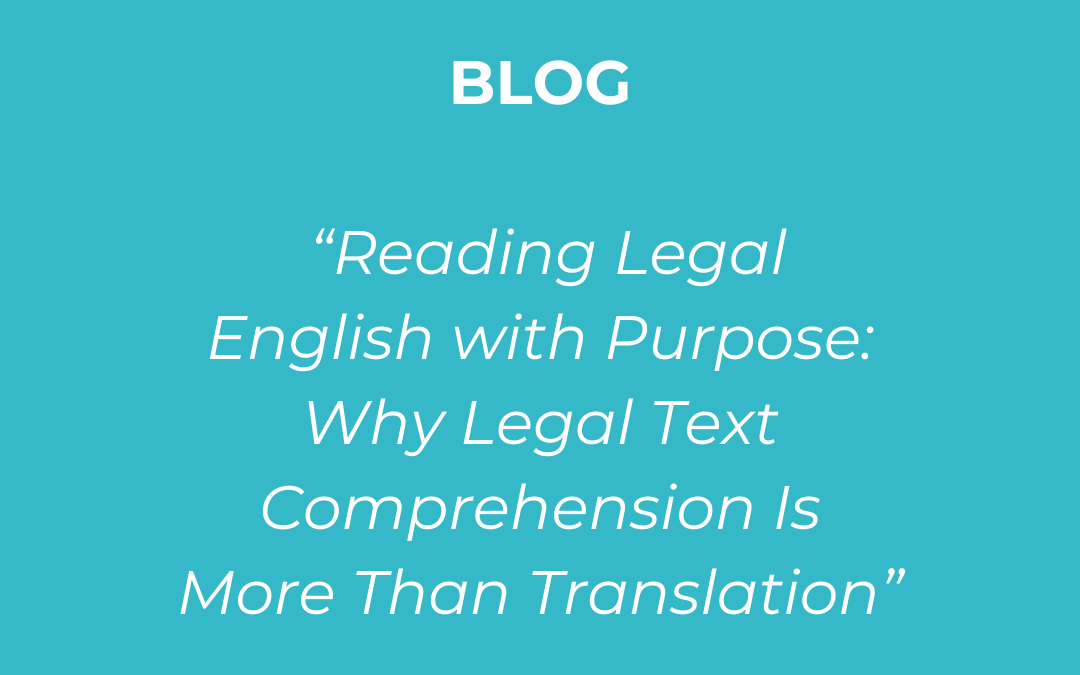Blog Post #2 – Reading Legal English with Purpose: Why Legal Text Comprehension Is More Than Translation
When lawyers (and law students) read legal texts in English, especially dense materials like case law or contracts, they often ask: “Should I be translating this?”
The better question might be: “What is the function of this text, and what do I need to get from it?”
Reading is a strategic skill
Whether you’re preparing for a university entrance exam, trying to understand a cross-border agreement, or simply researching foreign legal sources, you’re often not trying to absorb every word. You’re reading to locate specific information, understand structure, interpret legal reasoning, or identify arguments.
Here’s a real-world example: several Brazilian postgraduate law programs (such as UERJ’s Master’s in Law) include a test of English legal reading skills. These tests don’t expect candidates to know every word, but they assess how well you can:
- Identify the main argument and supporting points.
- Recognize structure and transitions (e.g., contrast, conclusion).
- Understand the use of modal verbs in legal obligation (must, shall, may).
- Distinguish fact from opinion.
- Interpret specialized terms like tort, estoppel, or injunction from context.
These are the same skills used in international legal practice. Whether reading a U.S. judgment, a UK contract clause, or an academic legal article, the goal is to move beyond translation and toward strategic comprehension.
This is why one of the most effective things you can do is practice reading legal texts with a clear goal in mind. Ask yourself: What is the purpose of this clause? What’s the legal principle being applied? Where is the conclusion? Which party is arguing what?
Grammar & Usage Nugget
In contract drafting, the choice of modal verbs affects the force of a clause.
- Shall is traditionally used to impose obligations (The Buyer shall pay…), but in modern usage (especially in contracts governed by U.S. law), must is increasingly preferred for clarity.
- May grants permission (The parties may terminate the contract…).
- May not expresses prohibition (The Seller may not disclose confidential information…).
- Will is used for declarations of future fact or intent (The Agreement will terminate on 30 June).
- Should suggests a recommendation but is not binding.
Expert Tip: Your ability to distinguish between obligation, permission, and recommendation can be the difference between understanding a key clause or missing it entirely.
Whether you’re working on your own skills or leading a team, I can help you apply Legal English more confidently. Reach out to learn more.
